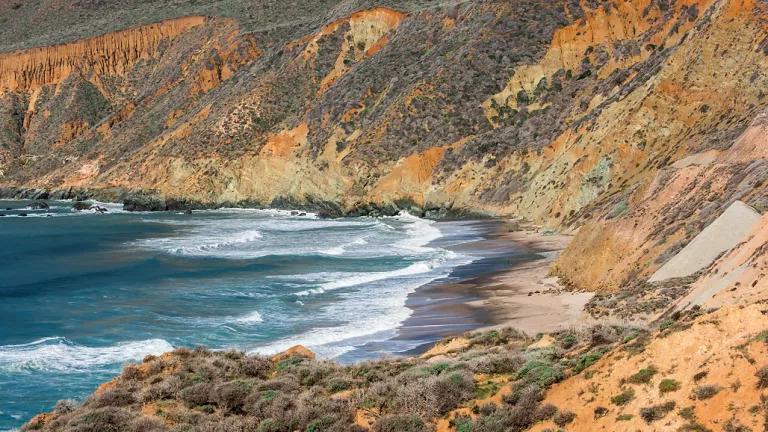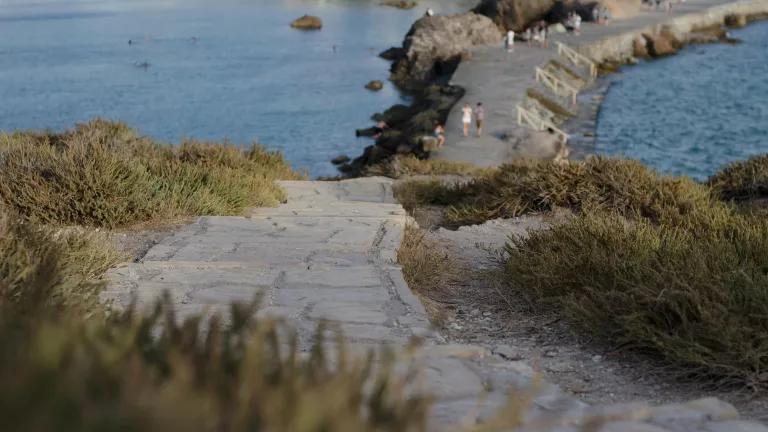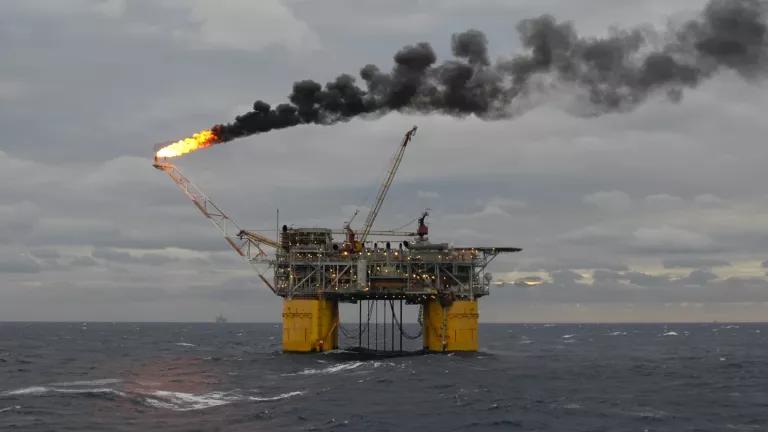Introducing Ocean Justice: A New Policy Vision
The Ocean Justice Forum seeks to address the shortcomings of policies that have left frontline communities behind.

What do we mean when we talk about equity and justice in the context of ocean policy? At the core of it, it means that the communities most vulnerable to sea level rise, increasingly intense storms, and health effects from port pollution and petrochemical development should not shoulder the burden of the climate crisis. This is what is happening to our coastal communities - people of color and poor communities are harmed first and worst. It needs to stop.
The Ocean Justice Forum has brought together eighteen grassroots and national nonprofit organizations from across the U.S., including NRDC – seeking to map this different course. Our goal was to address the shortcomings of policies of the past that have left frontline communities behind by collaboratively envisioning what a just ocean future, including specifically more inclusive and equitable ocean policies, should look like. As Marce Graudiņš of Azul put it, these groups are “united around one common goal of putting justice at the heart of ocean policy.”
The Ocean Justice Forum spent the past 18 months working to find common ground, define ocean justice, and develop a consensus policy platform guided by unifying principles for how to develop and implement a different type of ocean policy. The focus was on lifting up the voices of the most impacted communities. We also worked intentionally on developing an ethos of collaboration, partnership, and trust among the participants.
Here is a definition of ocean justice that emerged:
Ocean Justice exists at the intersection of social inclusion, ocean stewardship, and justice. It harnesses a power shift advancing the voices, full participation, and leadership of historically excluded Peoples and Black, Indigenous, people of color (BIPOC) communities in ocean decision-making, ensures meaningful and equitable engagement of all communities, and delivers equal access to healthy and prospering shorelines and oceans for all.
The Forum developed the following four principles to guide the development of the platform:
- Ocean justice requires inclusive and equitable policy solutions.
- Ocean justice requires resourcing communities for conservation and climate adaptation.
- Ocean justice requires equitable representation and authority in decision-making.
- Ocean justice requires accountability and a just transition.
Finally, the Ocean Justice Forum’s platform establishes what we believe is needed to achieve ocean justice and sets clear policy priorities to guide policymakers’ approach to just and equitable ocean policy:
- Protect the ocean and the benefits it provides for all: A healthy ocean provides communities with economic opportunities, recreation, cultural and spiritual practices, and more. Policies to protect and restore ocean health through 30x30 and other efforts must include the perspectives and leadership of ocean justice communities, and provide equitable access to ocean resources.
- Alleviate the disproportionate burden of pollution on ocean justice communities: Pollution from fossil fuels, agricultural runoff, plastics, and more disproportionately affect ocean justice communities. Policymakers must hold polluting industries accountable while also reducing and removing legacy pollutants.
- Promote an economy that sustains the ocean and communities that rely on it: A just ocean economy must prioritize people over corporations and uplift communities with family-sustaining jobs. It’s on policymakers to include communities in decision-making and ensure they can support their historic and traditional ways of life.
- Uplift justly-sourced renewable energy from the ocean: The ocean has more to offer than dirty and dangerous fossil fuels. It’s time to stop taxpayer support of offshore oil and gas that has harmed ocean justice communities, eliminate port emissions, end the continued expansion of extractive energy production and false solutions, and transition to justly sourced renewable energy.
- Prioritize community social cohesion in disaster response and adaptation investments: For too long, ocean justice communities have not had adequate support from the federal government as they face rising tides and stronger storms. Policymakers must strengthen planning, provide resources to minimize expected impacts, and increase investments in emergency response to help communities recover so that they have the resources and support necessary to make their own short and long-term decisions.
At today’s press conference announcing the release of the Ocean Justice Forum’s platform, as well as the definition and principles, members of the Forum spoke about the platform and the work that went into creating this together:
Rev Susan Hendershot from Interfaith Power and Light shared, “When we work on ocean policy, it isn’t just what we do, what's at the heart of it is, is how we do it. What I love about the platform is that it centers communities in everything”
Trisha Kehaulani Watson, of Āina Momona shared“ So often indigenous and BIPOC people are not brought to the table. This was not an easy process - you have to make a deep commitment to work with communities. We want to be part of that change.”
Iyanva Johnson, from Earth Echo International, spoke to the importance of youth “We have young people across the world, pushing and organizing for social change. We want and need a just transition, and that includes the young people. Action needs to happen now”
Colette Pichon Battle of Taproot Earth made it clear that “Our oceans play a major role in the global narrative of climate change. Taking on ocean justice reflects that the time has come for the work on ocean conservation to meet and intentionally intersect with climate and environmental justice. The voices of these frontline communities were at the heart of this work. “
The ocean justice platform presents the ocean conservation movement and policymakers with a new path, one that will make ocean climate policy more inclusive and just, and address the shortcomings of policies of the past that have left frontline communities behind. This platform lays out an ambitious but necessary vision to guide policy in the direction of ocean justice.
You can access the Ocean Justice Platform here. We encourage groups to join us and sign onto the platform.





